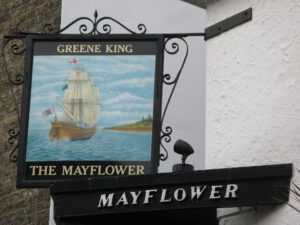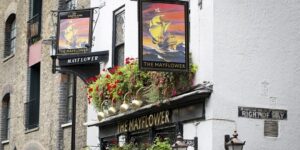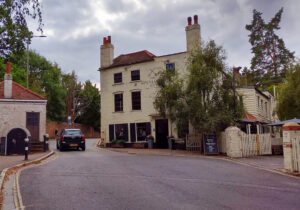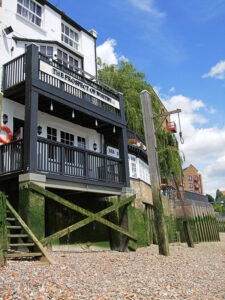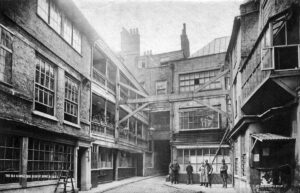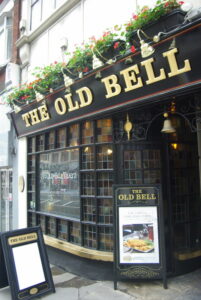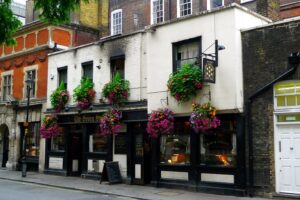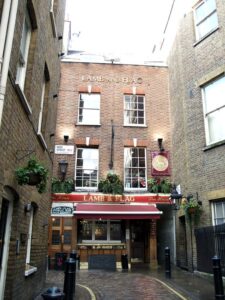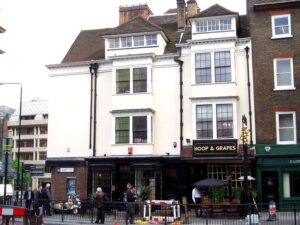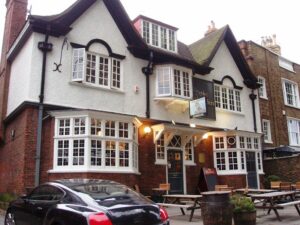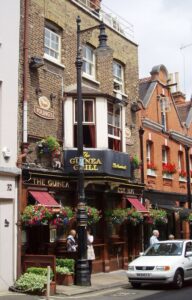10 of London’s Oldest Pubs
Date post added: 24th March 2025
Which are the oldest pubs in London?
Much of British life and culture has happened in pubs for centuries. In fact, the concept of a pub dates back to Roman times (although being Roman they preferred wine to beer). Taverns, alehouses and inns were all precursors to the British pub that we know today.
In 1357, a law was introduced citing that public houses needed to have signs outside displaying their names (for tax inspectors and travellers predominantly). As so many people were illiterate, the signs tended to display symbols or pictures. That’s where the pub sign that we still see today originated.
All over London, you’ll find traditional boozers that date back centuries. Think wood panelling, bar stools, beams and great beers on the pump (ideally served in a tankard). With so many old pubs to choose from across the city, we’ve edited the choice to ten of the best.
The Mayflower pub, Rotherhithe SE16 4NF
This aptly named pub in Rotherhithe was the site of history back in 1620. A ship called The Mayflower set sail from the back of it and sailed across the Atlantic. On board were a group of religious types who became known as The Pilgrim Fathers. They founded the USA.
The historic pub on Rotherhithe Street is set right beside the Thames and is said to be the oldest pub on the river. Whether that’s factually accurate or not, the pub dates back to 1520 and is well worth a visit. Further along the Thames in Limehouse, you’ll find The Grapes which dates back to 1583 and also retains that old world tavern feel.
Join our Ahoy! The Mayflower Walk to explore the fascinating history of Rotherhithe further.
The Spaniards Inn, Hampstead NW3 7JJ
Dating back to 1585, this slightly rickety old building is the stuff of legends. It’s set on the edge of beautiful Hampstead Heath and it’s a great place in which to warm up by a roaring fire after a long walk around Hampstead.
Rumour has it that John Keats wrote Ode to a Nightingale in this glorious pub garden. It’s said that Charles Dickens and Lord Byron also drank here, perhaps to fuel their creative thought. Literary types could try it to see if there’s something in the water (or ale) there.
Another story is that it was the home of the highwayman, Dick Turpin. His dad was the owner at some point, according to legend, so Mr Turpin Jr would call in to quench his thirst after a day on the rob.
Discover more on our Hampstead Village pub walk.
The Prospect of Whitby, Wapping E1W 3SH
Like The Mayflower, this waterside pub at 57 Wapping Wall dates back to 1520 and claims to be the oldest pub by the river. These days, it’s a lovely location to watch the Thames flow by. Back in the 16th century though, it would have been home to smugglers, thieves, drunkards and all sorts of unsavoury types. It was known as ‘The Devil’s Tavern’ then.
It’s another pub that claims Charles Dickens as a punter, along with the diarist Samuel Pepys. These writers certainly liked their ale.
To this day, it has the old flagstone floor and nautical paraphernalia like masts and ropes. Talking of ropes, look up at the balcony and you’ll find a noose hanging there from the days when that was considered entertainment.
The George Inn, Southwark SE1 1NH
What is the oldest gallery pub in London? To find it, head west from Wapping and Rotherhithe along the Thames Path to Southwark. Here, at 75 Borough High St, you’ll find The George Inn. It’s a traditional, galleried coaching inn, the likes of which you won’t find anywhere else.
It’s a stone’s throw from London Bridge and Borough Market. Being near The Globe Theatre, Southwark was Shakespeare’s hood. Not only did Will drink here, but his plays were performed in the courtyard. The pub dates back to 1583 and, once again, there are links to Charles Dickens too. This time, it features in the pages of Little Dorrit.
The Old Bell Tavern, Fleet Street EC4Y 1DH
Let’s head over to the other side of London Bridge and to Fleet Street. The Old Bell is worth a visit for its exceptional architecture. When Sir Christopher Wren wasn’t busy with the likes of St Paul’s Cathedral, he turned his mind to pub buildings apparently. The Old Bell was built by Sir Christopher Wren to keep his masons happy as they rebuilt the city in the wake of the Great Fire of London. The stone floors and stained glass windows provide a nod to his other architectural triumphs.
While you’re there, wander along to 145 Fleet St and check out Ye Olde Cheshire Cheese (EC4A 2BU) too. It had to be rebuilt after the Great Fire of London when the original building (from 1538) was burnt down. The current building is hardly modern though – it’s from 1667.
Discover more about the impact of The Great Fire of London with our 1666 Fireworks walk.
The Seven Stars, Holborn WC2A 2JB
Nearby Holborn is rife with traditional old pubs. Opposite the Royal Courts of Justice, is The Seven Stars. Unsurprisingly, it’s frequented by legal types and even the pub cat wears the judge’s white lace collar piece. This Grade II listed building has an interesting history harking back to 1602. Pull up a stool by the bar and you’re likely to hear some fascinating stories from its punters and landlord alike.
The pub’s name is believed to have derived from the “The League of Seven Stars” – referring to the seven provinces of the Netherlands. It’s thought to have been called “The Leg and Seven Stars” at one time.
Holborn is a top place for an old pub crawl. There are some cracking traditional boozers around here. Ye Olde Mitre in Ely Court (Holborn EC1N 6SJ) has an interesting history from 1546. If only its wood-panelled walls could talk they may verify the story that Queen Elizabeth I once danced around its cherry tree.
Another traditional Holborn local to check out is the Cittie of York (WC1V 6BN) at 22 High Holborn. Also on High Holborn, you’ll find a wonderful Victorian pub named The Princess Louise. The inside has gorgeous original features like mosaic floors, and dark wood ‘snob screens’ to divide up the space (and the people within it).
The Lamb and Flag, Covent Garden WC2E 9EB
In the 19th century, it was common to have bare-knuckle fights take place here. That’s why it became known as The Bucket of Blood. That name wasn’t exactly a marketer’s dream, so the pub at 33 Rose St was renamed The Lamb & Flag.
It’s a small pub in a back alley, but it has a large history from its origins in the 17th century (1623). There are gruesome London tales of brawls, murders and duels, as well as tales of Charles Dickens drinking there (of course).
John Dryden, the 17th century poet laureate, was set upon by a gang of roughs and beaten to within an inch of his life outside The Lamb And Flag. A known satirist, it seems not everyone shared his humour.
Hoop and Grapes, Aldgate EC3N 1AL
This City of London pub was one of the only timber-framed buildings that actually survived The Great Fire of London. It’s said that the flames just missed it, getting as close as 50 yards away. It was originally the Hop and Grapes signifying that it sold beer and wine.
This characterful, traditional pub is on the tilt – adding further character and charm. It’s a fine old boozer.
The Wrestlers, Highgate N6 4AA
This Highgate pub is just what you want from a local. It has an inviting garden for summer drinking and a roaring fire to huddle round in the winter. Add to that a good selection of cask ales and a decent Sunday roast. The Wrestlers ticks the boxes and that’s why it’s such a popular spot.
Founded in 1547, The Wrestlers continues some historic traditions. There are antlers on the wall and every so often, visitors can take part in the ritual. Swearing on the Horns is a slightly strange oath devised for visitors of various pubs in Highgate during the 17th, 18th and 19th centuries confirming dedication to merriment and debauchery.
The Guinea, Mayfair W1J 6NL
Whilst the current building was constructed in 1720 making it a relative youngster, there’s been an inn on this site since the 15th century (1423 to be precise). It became The Guinea in 1657.
More recently, The Guinea has positioned itself as a steakhouse. It’s been serving up decent steak on the grill since 1952. Of course, these days the produce is dry aged, grass-fed and the best British beef and the fish is locally sourced on British day boats.
Join as at the pub!
We run a whole host of pub crawls, sorry we mean walks! They’re insightful and great fun – try secret Soho, Belgravia or the Along the Thames pub walk

